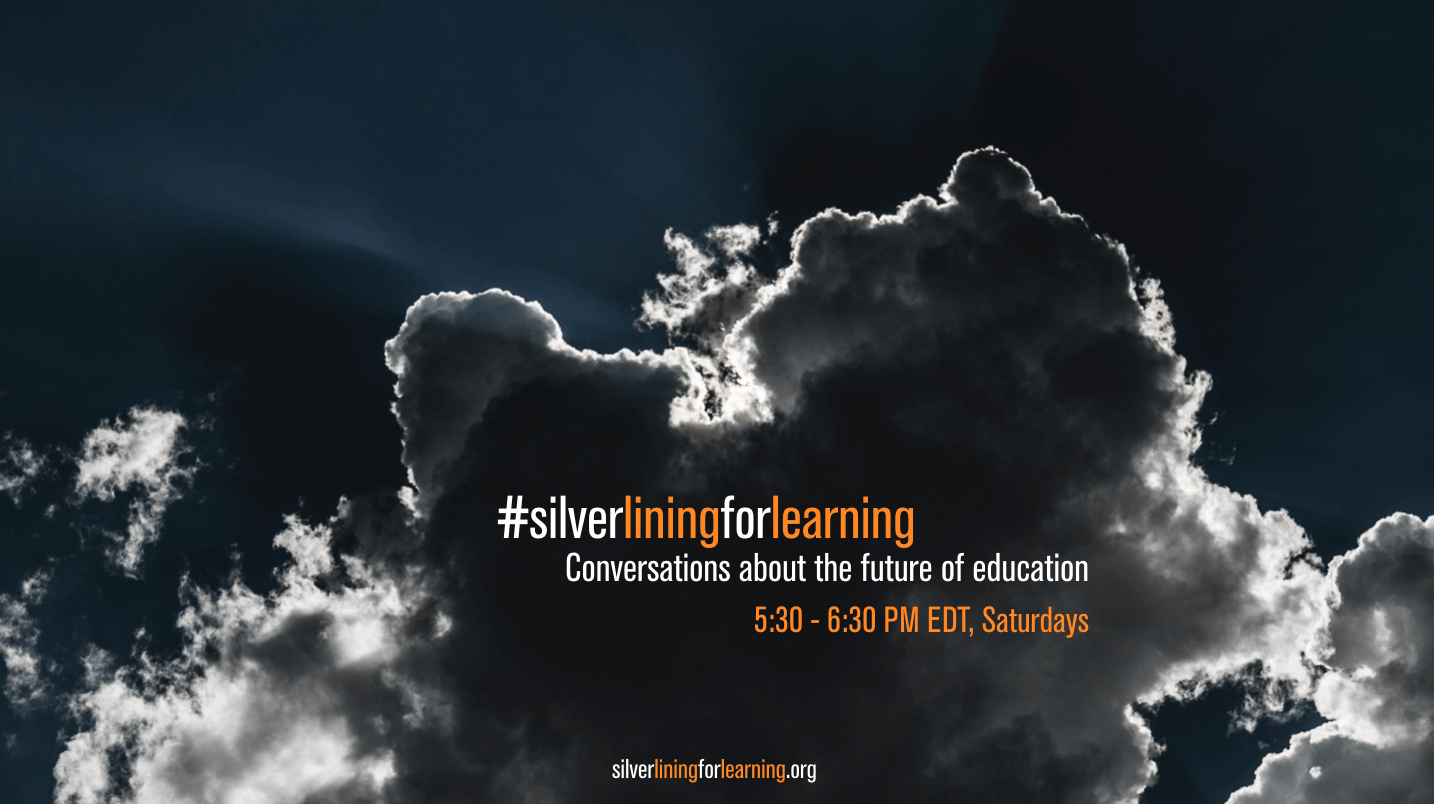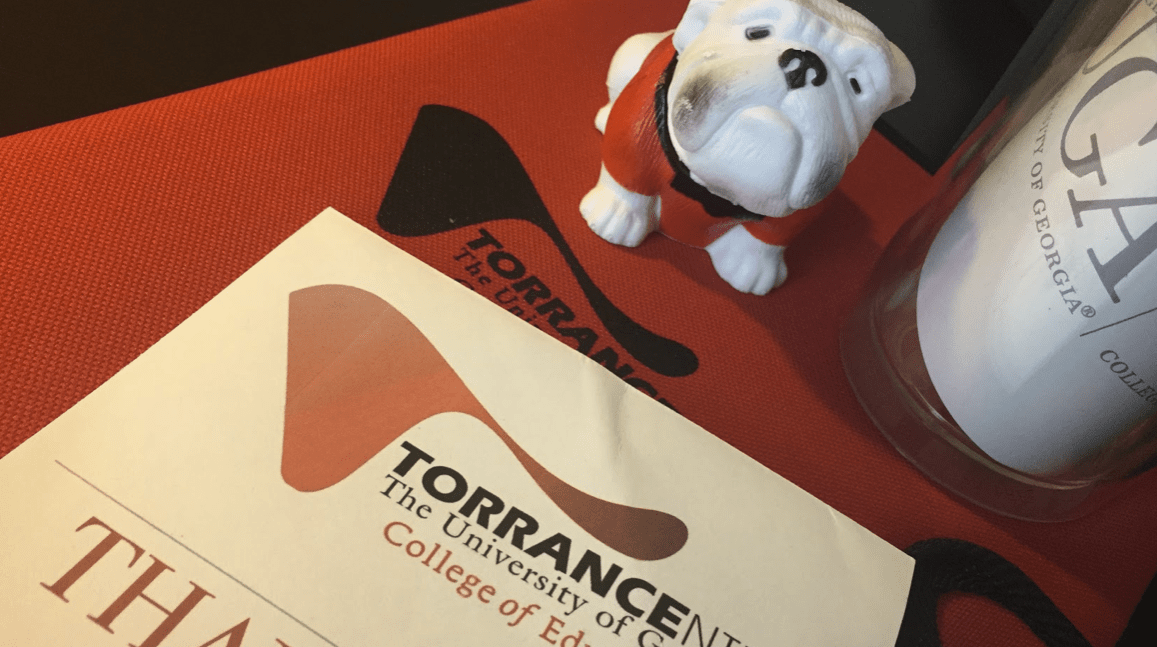A week or so ago, Yong Zhao reached out to Chris Dede, Curt Bonk, Scott McLeod and me with the question:
What would happen to our global and local educational systems, if the Corona virus outbreak lasted for a year?
We met a week ago (via zoom, what else) to discuss this and that has led to a a website and a live broadcast under the broad heading: Silver Lining for Learning. The show will be broadcast live on YouTube Live from 5:30 to 6:30pm US EDT on Saturdays and archived on the website silverliningforlearning.org. As we describe it on the website:
The “dark cloud” of the coronavirus crisis continues to cause havoc worldwide and seems a generation-defining event. In education, this crisis has forced schools and universities to close, pushing often unprepared institutions to move teaching and learning online. The already stressed educational ecosystem now faces unprecedented difficulties that will fall disproportionately on students of low socioeconomic status and marginalized groups. This situation continues to worsen and is expected to persist for months or even years before normalcy occurs.
This disruption, however, provides us with an opportunity to reimagine learning and teaching so as to create an equitable and humanistic learning ecosystem for all. Barriers and structures that have resisted much needed change are now in disarray, offering the chance for transformative improvements.
We seek to begin this reimagining through a series of interactive conversations of emerging trends, disruptive policies, programs, initiatives, and often controversial, murky, and unspoken topics.
The first episode is now done and dusted. We had great participation from people who logged on via YouTube, who were running a parallel discussion on that channel, as well as on Twitter. Scott somehow managed to participate in all three—while I stuck to two: the Zoom discussion and the YouTube chat. Anyway, the video is now available (minus some truncated introductory bits at the beginning).
Watch out for the next edition, coming up on Saturday 5:30 ET.





I posted this on the YouTube feed but thought I would duplicate here… A few things I took from this talk… Firstly, “never waste a good crisis!” Spot on there… At a time of crisis we take certain decisions… and the decisions we make today will lay the foundation for the Post Covid-19 era. Luckily as educators we can guide those decisions.
Looking forward to discussion in future talks on issues of “equity” – hot topic here at the moment in South Africa for example. On this point I loved the question posed by Punya “are we going to accept the lowest common denominator… of what online learning can be?” You are also quite correct in saying that “suddenly teacher expertise is only now being valued worldwide…” – evidenced in all of the memes out there related to parents doing home schooling turning to alcohol and expelling the kids on day 3 🙂 (and in all of the scientific illiteracy you mentioned – can you believe some of the rubbish that has been posted by some “experts”?) Many parents over here only now see that schools have become the center of too much… “the world’s problems”… (like teaching relationships, morals and values, appropriate behavior, to name only a few). We do need to get back to a focus on learning in schools and parents need to play their own part in the education of their kids.
Seeing the rush by our schools (both government and private) to move everything online and “replicate the formal timetable” I totally agree that it is a good time to give kids a break. Time to step back and see what other issues are important. Regarding your comments on socio-emotional learning – it is true… parents are NOT “present” enough at the moment to ensure this learning (well in our context for sure!). Family backgrounds (and opinions on learning) differ greatly over here but like you said… there are positive opportunities for all of us in education… I am going to ask our students tonight if they have any ideas on this issue… (we are dealing with issues related to assessment at the moment) and hopefully I can share them with you later?